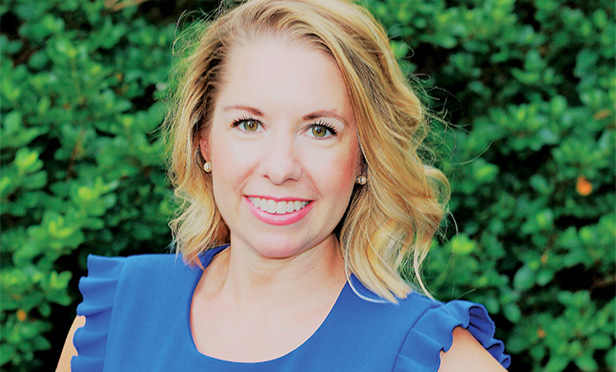 Kassi O'Brien is a benefit consultant with Managed Benefits, Inc.
Kassi O'Brien is a benefit consultant with Managed Benefits, Inc.
Kassi O'Brien is a benefit consultant with Managed Benefits, Inc., a privately owned consulting firm serving the Mid-Atlantic states and beyond. Expertise and customer service have always been the foundation of the organization, and a client-centered focus continues to guide their future.
Paul Wilson: How did you get your start in the benefits industry?
I started out of college working as an industrial engineer and then moved into cost accounting, so my foundation was very analytical and numbers-oriented. I moved into the benefits arena with the onset of the ACA. I was brought into a small agency to do all their 1094 and 1095 reporting. During the first year, I had no clue about benefits outside those I received from my employer, but I filed about 4,000 forms in 2013. I realized I had a knack for it; you really have to understand eligibility dates, affordable coverage, the percentage of income and safe harbor. It was a baptism by fire.
Related: Succession planning: Begin with the end in mind
PW: How has your career path shaped you?
I'm an outsider to the industry, and I look at that as a huge positive. Because of my industrial engineering background, I'm always asking “Why are we doing this? Does this make sense?” I started questioning early on, exploring ideas and trying to figure out different ways to help clients.
I got a lot of pushback in the past, but joined Managed Benefits, where they have a strong self-funding background. They've been in business for 28 years and have been self-funding the whole time. I had an opportunity to work with people who knew that business and who were willing to implement new ideas.
PW: What are your thoughts on self-funding and other strategies we're seeing. Will they become more popular?
I think in Richmond and outskirts, we're going to see a huge push in the next few years. D.C. is part of my territory, and when I'm with a prospect and bring up self-funding or level-funding, they've been introduced to it. Probably about 80 percent of the time, they're currently utilizing it. In Richmond, it's completely the opposite. When I bring it up there, people are not familiar and probably only 10 percent are currently using it.
But I think this is changing. Richmond is incredibly young, has an entrepreneurial vibe and the tech industry is very big here. The demographics in that industry skew much younger, and they are open and often interested in trying something different. When you explain it, they get it very quickly.
PW: So it's not just younger brokers who are embracing these strategies, but the younger employers as well.
Right. I don't know if you've read the book “The Tipping Point” by Malcolm Gladwell, but I feel like that's where we are in the industry. Something has to change. Owners and CFOs are seeing that they're in the business of health care—it's the second or third line item for them. During the recession, they adopted a lean operating model and reduced costs where they could, but this is one place they just didn't know how. But innovative brokers are now coming and showing them how they can have control.
PW: When people aren't familiar with these strategies, what are the main objections you're hearing?
I think it's different, depending on which market segment you're in. In the mid-market segment, CFOs and owners often see it as new and risky. Just last week, I introduced a level-funded arrangement to a prospect. It would have produced significant savings, but I got an email that said he sees the benefit, but isn't ready to take that risk yet.
In the large market, 200+ lives, I think they're a little quicker to adopt. They typically have an HR director who is reading articles and talking to their counterparts, who's been introduced to it. There has to be effort on the part of the employer and employee. If we continue with the mindset of “We're not going to do anything different; I don't want extra work,” then there are very few options to contain cost.
HR is a part of the discussion and the decision, and their job is to attract and retain talent and keep employees happy. So when employees aren't happy because they have to turn in more paperwork, for example, it's easier for HR to push back and say, “I can't hire anyone because of this,” especially as our labor market tightens.
PW: How do you maintain a balance between the data and the human side of the industry?
I have two children, a husband, and a mom who is going through stage 4 cancer right now, so I have been affected personally by the products I'm selling and implementing into groups. You can look at it from a pure numbers standpoint, which is where my mind goes, but there's also a very emotional side to buying health care. At the end of the day, that's the most important thing for most people.
If I go into a blue-collar industry and I'm putting in a $6,000 HSA, the numbers look great. But I have to ask “How is this going to affect your employees?” Most people are living paycheck to paycheck, so this would bankrupt them. So it's definitely a two-sided conversation; it's not as easy as just looking at a spreadsheet.
PW: Do you think the industry is collaborating more as younger brokers try new things and need more feedback and guidance from peers?
I feel that what we're doing is for a greater good. We see health care costs are crippling the middle-income family and I really want to help others. Maybe it's because many in my generation grew up service-minded. I also think our communities have become more service-minded. Yes, we still need to make a living, but we're also trying to affect the market and fix something that's really broken.
PW: How can the industry do a better job of attracting more women and young, innovative consultants?
It's interesting you ask that, because I was at a renewal meeting the other day and I looked around the table. The executive director, the CFO, the HR director and myself were all female. And I stopped for a moment and actually said, “This never happens.” It was a good feeling.
I think to attract younger people, it comes down to the excitement in our industry and the ways we can create change. I've heard older brokers say, “It is what it is.” As I said before, our generation grew up with more of a community-service mentality. Helping others along with the excitement and innovation in the industry will bring a younger crowd. I think those ideas will also speak to a more predominantly female crowd, too.
PW: Do you ever feel like being a female in this industry has created extra challenges or that you're perceived in a certain way, or are we getting past that point?
When you initially walk into a room and you're young and female, you have a double whammy against you. But once I open a meeting and show my worth, that goes out the window and they see the value I bring to the table.
PW: What are your favorite things about your job?
We work with a lot of non-profits. It's great saving money for anyone, but especially for them. They're in our community and helping to improve it, so when I can get them more and make things better for their employees, it touches you on a different level. They're going to be able to fund initiatives that they otherwise might not have been able to fund.
PW: How much attention do you pay to politics, mergers and that stuff?
With the political climate and the reforms going on, I definitely pay attention. But I'm very slow to send that out to my clients. I feel like that changes day to day, week to week, tweet to tweet. As far as all the mergers go, I think it's a really interesting time, especially with health care acquiring pharmacies. I'm just watching and reading to see where it goes. We've never seen this before, so I don't know what to expect. It comes up in renewal discussions and I let them know what's going on, but I feel like no one is too focused on those mergers right now.
PW: Finish this sentence. The key to success in this industry going forward is…
Research and openness to change.
© Touchpoint Markets, All Rights Reserved. Request academic re-use from www.copyright.com. All other uses, submit a request to [email protected]. For more inforrmation visit Asset & Logo Licensing.






